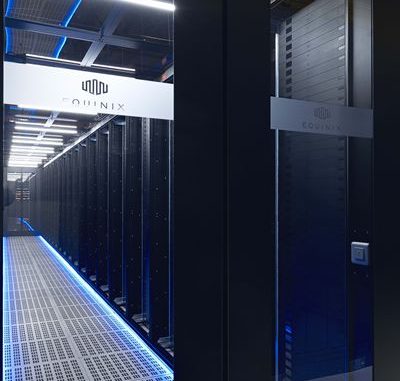
People familiar with the video game industry have been hearing about cloud gaming for so long that they may already be tired of the concept, even though it hasn’t yet hit the mainstream.
A number of high-profile disappointments, most notably the flameout of OnLive, have left gamers feeling that the idea might be an ahead-of-its-time fad, like virtual reality in the early 1990s. Plus there’s the additional hurdle of fidelity: Although our lives are becoming increasingly dependent on the cloud, it’s hard to convince gamers that any game-streaming platform can deliver an experience that’s as responsive as playing on a local machine.
While major players like Sony and Nvidia are currently running limited cloud gaming services, a two-year-old French startup called Blade is now entering the U.S. market after a successful showing in Europe. But unlike existing companies in the field, Blade isn’t just streaming games to customers. The company’s aim is nothing less than upending the model of personal computing altogether — and though its cloud-based platform, Shadow, seems like an impressive technical achievement, Blade may have a lot of convincing to do when it comes to winning over American customers.
A NEW KIND OF GAME STREAMING
Shadow follows the modern trend of moving away from owning expensive hardware. (No, it’s not exactly “Uber for PCs.”) Blade wants to simplify the PC experience and open it up to people who can’t — or don’t want to — commit the money or real estate necessary for a big, beefy gaming rig. The company’s idea is essentially to let people rent a powerful Windows virtual machine. So instead of ponying up, say, $2,000 for a high-end gaming PC, you pay Blade a monthly fee for a cloud-based equivalent.
To be clear, Shadow users aren’t sharing resources with each other; in effect, Blade is providing a dedicated virtual PC for every single paying customer. And the company is promising that the PC in question will always be capable of playing the latest games at the highest fidelity. This addresses one of the major downsides of PC gaming: having to continually replace your rig’s components to keep up with the times.
The Shadow platform currently offers a full PC running Windows 10 Home on an Intel Xeon CPU featuring four cores and eight processing threads, with 12 GB of DDR4 RAM and 256 GB of storage. Shadow’s Nvidia-based graphics solution is approximately equivalent to a GeForce GTX 1080, with 16 GB of video memory — twice as much as the amount in a consumer-grade GTX 1080 — and 8.2 teraflops of processing power. Blade handles all upgrades and maintenance on its end: As technology advances, or if components break down, the company will swap out its hardware for newer parts. In fact, Blade upgraded Shadow last November, replacing the platform’s GTX 1070-level GPU with the current GTX 1080 equivalent.
“The idea is that the user will never need to care about the hardware anymore,” said Asher Kagan, president and co-founder at Blade, during a demo at Polygon’s offices in New York last month.
Shadow runs on data centers provided by Equinix, and the service’s global expansion is directly tied to that physical hosting setup. (Cloud-based platforms have to exist somewhere on terra firma, after all.)
/cdn.vox-cdn.com/uploads/chorus_asset/file/9973727/equinix_paris_data_center_4912.jpg)
“Our issue is not a demand issue,” said Ness Benamran, chief operating officer for Blade’s U.S. division. “It’s a question of actually putting up the infrastructure.” Blade is so confident in Shadow’s availability, said Kagan, that the company “actually never developed an error message that [says], ‘The data center is full.’”
COMING TO AMERICA
Blade launched Shadow in France at the end of 2016, and quickly reached the 5,000-user capacity of its initial data center in Paris. The company let in customers from Belgium and Switzerland in late 2017.
Starting today, Blade is taking sign-ups for Shadowfrom American customers for the first time — but only from residents of California, since the company currently has just one U.S.-based data center, in Santa Clara. Blade is planning to launch Shadow for those customers on Feb. 15. From there, the company will gradually roll out the service across the country as it spins up more data centers, with the aim of offering Shadow nationwide by this summer.
Shadow will debut in the U.S. as a cloud-based service only. Using the Shadow software, customers will be able to access their virtual PC from a wide variety of screens. The app is currently available on Mac- and Windows-based computers, Android tablets and smartphones, and certain smart TVs; it is coming soon to iOS devices. This setup allows Mac users to operate a full Windows PC on their computer without bothering with Boot Camp. And because the Shadow app is cross-platform software, you can start using your PC on one Shadow-enabled screen and transition to a different one. In our demo, we switched from playing Rise of the Tomb Raider on a computer to running it on a smartphone, with only a brief hiccup to restart the mobile app.
[“Source-timesofindia”]
